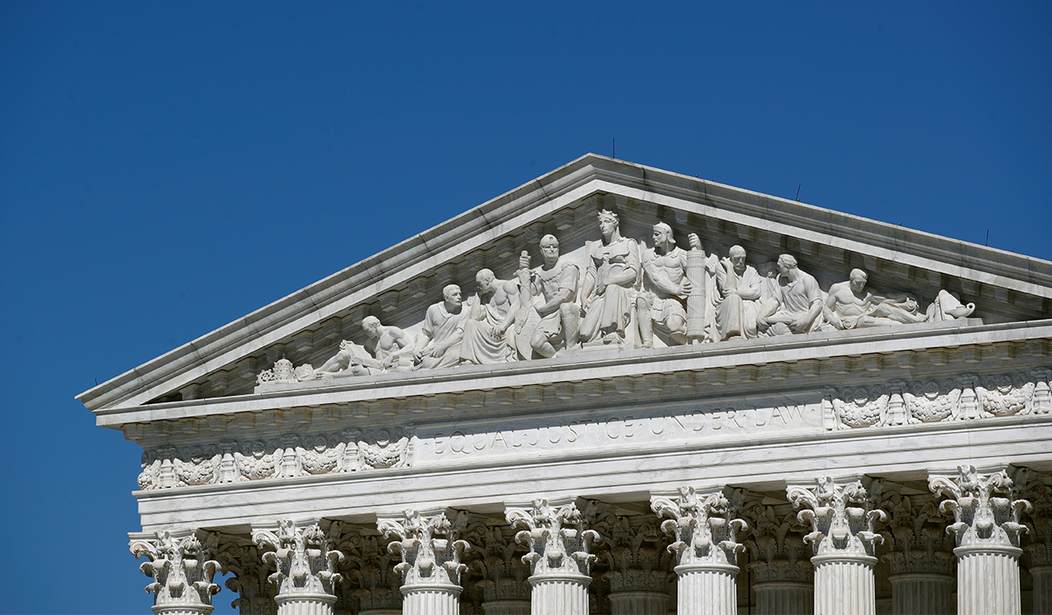The state of gun policy in this country is always in flux. It shouldn't be, mind you, because that whole "...shall not be infringed" thing is still part of the Second Amendment, but it is. That's not likely to change anytime soon, either.
This year, the Supreme Court had an opportunity to do great things to protect the Second Amendment.
They. Did. Not.
To call these defeats isn't out of line, even if they didn't really create long-term precedent that will screw the American people for generations to come. However, it was enough for some other people to claim them as wins.
Both sides of the gun debate agree that the Supreme Court’s actions this term were a mixed bag, but gun control advocates are claiming a small victory.
The justices upheld federal regulations for build at-home ghost gun kits, refused to give gun manufacturers broad immunity from civil suits, and turned away constitutional challenges to state bans on assault weapons and high-capacity magazines.
Those decisions left advocacy groups relieved and quelled some concern that the court’s conservative majority would eviscerate gun control measures.
...
Although the court threw out the Mexican government’s attempt to hold US gun manufacturers liable for allegedly funneling firearms to violent drug cartels, it didn’t give the companies everything they sought.
“It’s really important to note the court refused to go along with the gun industry’s efforts to leverage this case into a very broad ruling that would provide them with even more unprecedented protection than they currently enjoy,” said David Pucino, legal director and deputy chief counsel at the Giffords Law Center to Prevent Gun Violence.
Everytown for Gun Safety joined the Giffords Law Center and other gun violence prevention groups in supporting Mexico’s case. Everytown for Gun Safety is backed by Michael Bloomberg. Bloomberg Law is operated by entities controlled by Michael Bloomberg.
The court refused to consider gun manufacturers’ claim that they can’t be the “proximate cause” of Mexico’s injuries, which is legally required to hold them liable for the criminal misuse of their products under the Protection of Lawful Commerce in Arms Act.
That's because the "proximate cause" argument was absolutely stupid on the surface.
In my layman's understanding, "proximate cause" is when you do something that you can foresee will create harm to a third party. You're doing something that you can reasonably expect will result in some kind of injury or death, basically.
But selling guns in compliance with federal gun laws isn't something anyone can legitimately see resulting in cartel violence. It's absolutely insane, especially since export laws are being observed by the companies and they have a valid expectation of them being followed by all other parties down the line.
Further, they have no access to data regarding dealers who sell a lot of guns that end up in cartel hands. Even if they did, the "time to crime" matters since guns stolen in border communities are far more likely to end up in cartel hands, no matter what.
But, because the Court didn't rule definitively on it, they figure the door is still open there.
Additionally, they're claiming a bit of a win here because the Court didn't definitively rule on the constitutionality of the PLCAA, so they're apparently hoping that will somehow get overturned down the road.
There are other reasons for the anti-gunners to view this Supreme Court session as a win, though, as the NRA and other gun rights advocates consider it a mixed bag at best.
Even though Executive Director John Commerford applauded the court for rejecting Mexico’s lawsuit, he said in statement that NRA-ILA is “deeply concerned by the court’s refusal to rein in overreaching federal regulations on so-called ‘ghost guns’ and its unwillingness to hear key cases involving bans on some of the most popular arms in the nation.”
In a 7-2 ruling, the court upheld those regulations of ghost gun kits. In doing so, the court rejected arguments from gun manufacturers that the agency went too far in regulating these weapons parts kits as “firearms.”
Because many of these kits can be easily converted to functioning “firearms,” they can be regulated under the plain text of the Gun Control Act of 1968, the court said.
The court also turned away challenges to state gun regulations, including Washington, D.C., and Rhode Island bans on high-capacity magazines and Maryland’s so-called assault weapons ban.
Those are significant setbacks, to be sure.
However, besides the "ghost gun" kits--which can still be ended by the Trump administration if they so desire--much of this is just from not gaining ground versus actually losing it. That's not as bad as it could have been, since most of this doesn't move the needle one way or another.
In a lot of ways, what we have is maintaining the status quo in the Courts.
For gun control advocates, that's a minor win because they gained enough ground in the legislatures that isn't being undone. For us, these are setbacks because we're relying on the courts to restore gun rights in anti-gun states.
None of this is a good thing for us, but it's not as bad as it could be. Nothing from this session can't be undone down the road, and that's something to remember as we go forward.








Join the conversation as a VIP Member